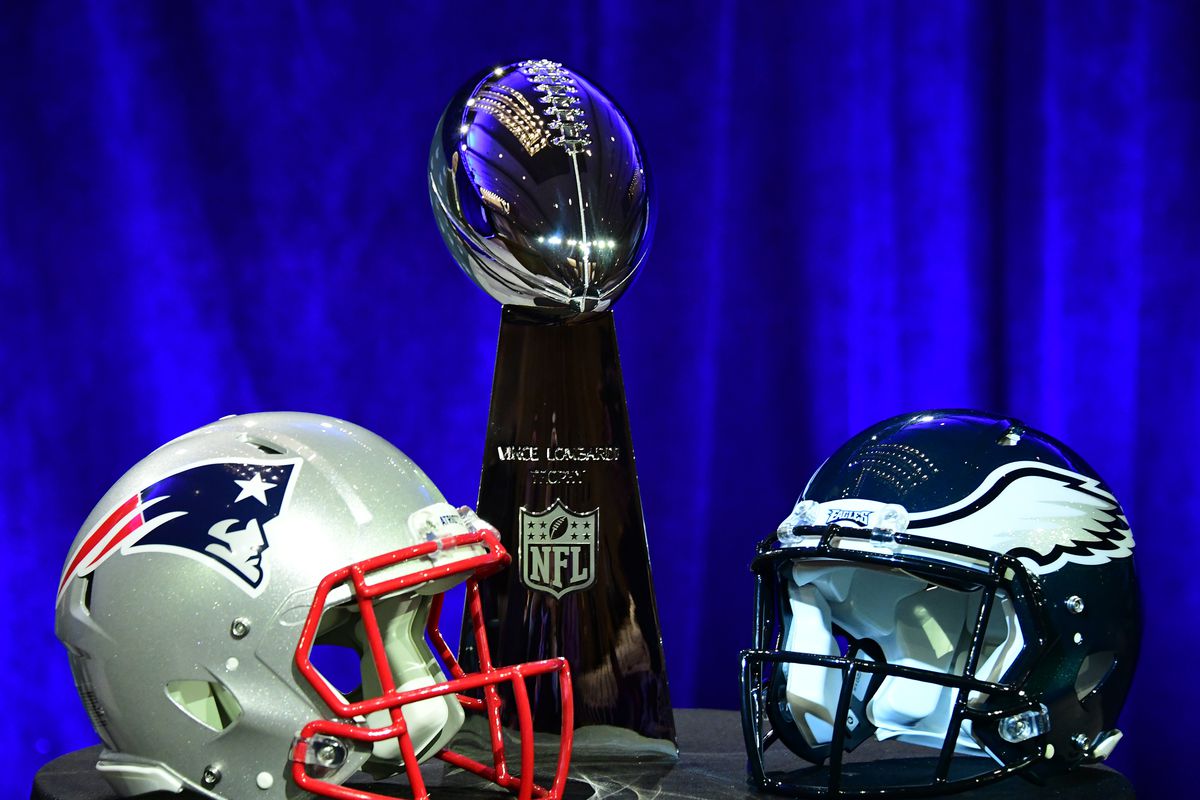
Atlanta to host 53rd showdown
For someone on the western side of the Atlantic Ocean, it's hard to fathom how next month's Super Bowl is the 53rd, when the National Football League (NFL) was officially formed in 1920.
The reason for this anomaly dates back to 1960 when a group of businessmen who wanted to own football franchises, but had been denied the opportunity by the NFL, decided to launch a rival league, known as the American Football League (AFL).
For several years the leagues operated side by side as gridiron opponents but then in 1966 the owners negotiated an agreement to merge the two.
Initially the NFL had just ignored the eight-team AFL, figuring it would just go away as previous NFL rivals had done. But the AFL survived and prospered, largely by signing NFL rejects who turned out to be highly-talented players the NFL had badly misjudged.
So the NFL and AFL found themselves locked in a massive bidding war for the top free agents and prospects coming out of college. Originally, there was a tacit agreement not to sign players who were already under contract with a team from an opposing league but this policy broke down in early 1966 when the NFL's New York Giants signed Pete Gogolak, a place-kicker who was under contract with the AFL's Buffalo Bills.
The AFL owners considered this an "act of war" and immediately struck back, signing several contracted NFL players, including eight of their top quarter-backs.
Eventually the NFL had enough and started negotiations with the AFL in an attempt to resolve the issue. As a result the leagues signed a merger agreement on 9 June 1966, with both leagues agreeing to share a common draft in order to end the bidding war for the top college players.
They also agreed on a merger into one single league after the 1969 season, with an AFL-NFL World Championship Game established in which the AFL and NFL champions would play against each other at the end of the season to determine the best team in the land.
The first four Super Bowls, which the clash of the titans became known as, took place prior to the leagues' merger, commencing with the 1966 NFL and AFL champions.
Super Bowl I was held at the Los Angeles Coliseum on 15 January 1967 between the NFL’s Green Bay Packers and the AFL’s Kansas City Chiefs.
Even though ticket prices averaged just US$12, it is the only Super Bowl that didn’t sell out.
The Packers beat the Chiefs 35-10 and followed that up a year later with a 33-12 victory against the Oakland Raiders in Super Bowl II.
Fans and critics began to question whether the AFL teams could hold their own but in Super Bowl III the AFL’s New York Jets defeated the Baltimore Colts 16-7.
Super Bowl IV was the last game played between the two leagues, with the AFL’s Chiefs beating the Minnesota Vikings 23-7.
 After the leagues integrated with the formation of two conferences, the AFC and NFC, in 1970, the popularity of the event grew. All 10 former AFL teams and three NFL teams formed the AFC, and the remaining 13 NFL clubs made up the NFC.
After the leagues integrated with the formation of two conferences, the AFC and NFC, in 1970, the popularity of the event grew. All 10 former AFL teams and three NFL teams formed the AFC, and the remaining 13 NFL clubs made up the NFC.
A series of league expansions and division realignments have occurred since the merger, thus making the current total of 16 clubs in each conference.
The Baltimore Colts, who joined the AFC, started the decade by beating the Dallas Cowboys in Super Bowl V, a game which is notable as being the only one to date in which a player from the losing team has won the Super Bowl MVP (Cowboys' line-backer Chuck Howley).
But in the 1970s three franchises – the Cowboys, Miami Dolphins and Pittsburgh Steelers – dominated the Super Bowl, winning a combined eight championships in the decade.
Since 2002 both conferences have been made up of 16 teams, organised into four divisions: East, North, South and West.
AFC
East: Buffalo Bills, Miami Dolphins, New England Patriots, New York Jets
North: altimore Ravens, Cincinnati Bengals, Cleveland Browns, Pittsburgh Steelers
South: Houston Texans, Indianapolis Colts, Jacksonville Jaguars, Tennessee Titans
West: Denver Broncos, Kansas City Chiefs, Los Angeles Chargers, Oakland Raiders
NFC
East: Dallas Cowboys, New York Giants, Philadelphia Eagles, Washington Redskins
North: Chicago Bears, Detroit Lions, Green Bay Packers, Minnesota Vikings
South: Atlanta Falcons, Carolina Panthers, New Orleans Saints, Tampa Bay Buccaneers
West: Arizona Cardinals, Los Angeles Rams, San Francisco 49ers, Seattle Seahawks
Currently, the 13 opponents each team faces over the 16-game regular season are set using a pre-determined formula, with each team playing the other teams in their respective division twice (home and away), in addition to 10 other games assigned to them by the NFL (the organisation that overseas the 32-team competition).
Two of these games are assigned on the basis of a particular team's final divisional standing from the previous season. The remaining eight are split between two other NFL divisions determined by the league, with the allocation shifting each year according to a standard cycle.
At the end of each season, the winner of each division, in addition to the two remaining conference teams with the highest regular season records, head into the play-offs. These teams consist of the four division winners and the top two wild-card teams.
The winners of the respective conference championship games then contest the Super Bowl.
In 2019 that game will take place on 3 February at Mercedes-Benz Stadium in Atlanta, Georgia, with the conference play-offs currently underway.
For more information visit the NFL website.
Superbowl Champions
I Jan 15, 1967, Los Angeles Memorial Coliseum, Green Bay 35 Kansas City 10
II Jan 14, 1968, Orange Bowl (Miami), Green Bay 33 Oakland 14
III Jan 12, 1969, Orange Bowl (Miami), New York Jets 16 Baltimore 7
IV Jan 11, 1970, Tulane Stadium (New Orleans), Kansas City 23 Minnesota 7
V Jan 17, 1971, Orange Bowl (Miami), Baltimore 16 Dallas 13
VI Jan 16, 1972, Tulane Stadium (New Orleans), Dallas 24 Miami 3
VII Jan 14, 1973, Los Angeles Memorial Coliseum, Miami 14 Washington 7
VIII Jan 13, 1974, Rice Stadium (Houston), Miami 24 Minnesota 7
IX Jan 12, 1975, Tulane Stadium (New Orleans), Pittsburgh 16 Minnesota 6
X Jan 18, 1976, Orange Bowl (Miami), Pittsburgh 21 Dallas 17
XI Jan 9, 1977, Rose Bowl (Pasadena), Oakland 32 Minnesota 14
XII Jan 15, 1978, Superdome (New Orleans), Dallas 27 Denver 10
XIII Jan 21, 1979, Orange Bowl (Miami), Pittsburgh 35 Dallas 31
XIV Jan 20, 1980, Rose Bowl (Pasadena), Pittsburgh 31 Los Angeles 19
XV Jan 25, 1981, Superdome (New Orleans), Oakland 27 Philadelphia 10
XVI Jan 24, 1982, Silverdome (Pontiac), San Francisco 26 Cincinnati 21
XVII Jan 30, 1983, Rose Bowl (Pasadena), Washington 27 Miami 17
XVIII Jan 22, 1984, Tampa Stadium, Los Angeles 38 Washington 9
XIX Jan 20, 1985, Stanford Stadium, San Francisco 38 Miami 16
XX Jan 26, 1986, Superdome (New Orleans), Chicago 46 New England 10
XXI Jan 25, 1987, Rose Bowl (Pasadena), New York Giants 39 Denver 20
XXII Jan 31, 1988, Jack Murphy Stadium (San Diego), Washington 42 Denver 10
XXIII Jan 22, 1989, Joe Robbie Stadium (Miami), San Francisco 20 Cincinnati 16
XXIV Jan 28, 1990, Superdome (New Orleans), San Francisco 55 Denver 10
XXV Jan 27, 1991, Tampa Stadium, New York Giants 20 Buffalo 19
XXVI Jan 26, 1992, Metrodome (Minneapolis), Washington 37 Buffalo 24
XXVII Jan 31, 1993, Rose Bowl (Pasadena), Dallas 52 Buffalo 17
XXVIII Jan 30, 1994, Georgia Dome (Atlanta), Dallas 30 Buffalo 13
XXIX Jan 29, 1995, Joe Robbie Stadium (Miami), San Francisco 49 San Diego 26
XXX Jan 28, 1996, Sun Devil Stadium (Tempe), Dallas 27 Pittsburgh 17
XXXI Jan 26, 1997, Superdome (New Orleans), Green Bay 35 New England 21
XXXII Jan 25, 1998, Qualcomm Stadium (San Diego), Denver 31 Green Bay 24
XXXIII Jan 31, 1999, Pro Player Stadium (Miami), Denver 34 Atlanta 19
XXXIV Jan 30, 2000, Georgia Dome (Atlanta), St Louis 23 Tennessee 16
XXXV Jan 28, 2001, Raymond James Stadium (Tampa), Baltimore 34 New York Giants 7
XXXVI Feb 3, 2002, Superdome (New Orleans), New England 20 St Louis 17
XXXVII Jan 26, 2003, Qualcomm Stadium (San Diego), Tampa Bay 48 Oakland 21
XXXVIII Feb 1, 2004, Reliant Stadium (Houston), New England 32 Carolina 29
XXXIX Feb 6, 2005, Alltel Stadium (Jacksonville), New England 24 Philadelphia 21
XL Feb 5, 2006, Ford Field (Detroit), Pittsburgh 21 Seattle 10
XLI Feb 4, 2007, Dolphin Stadium (Miami), Indianapolis 29 Chicago 17
XLII Feb 3, 2008, University of Phoenix Stadium (Glendale), New York Giants 17 New England 14
XLIII Feb 1, 2009, Raymond James Stadium (Tampa), Pittsburgh Steelers 27 Arizona Cardinals 23
XLIV Feb 7, 2010, Sun Life Stadium (Miami), New Orleans Saints 31 Indianapolis Colts 17
XLV Feb 6, 2011, Cowboys Stadium (Arlington), Green Bay Packers 31 Pittsburgh Steelers 25
XLVI Feb 5, 2012, Lucas Oil Stadium (Indianapolis), New York Giants 21 New England Patriots 17
XLVII Fe. 3, 2013, Mercedes-Benz Superdome (New Orleans), Baltimore Ravens 34 San Francisco 49ers 31
XLVIII Feb 2, 2014, MetLife Stadium (East Rutherford), Seattle Seahawks 43 Denver Broncos 8
XLIX Feb 1, 2015, University of Phoenix Stadium (Glendale), New England Patriots 28 Seattle Seahawks 24
50 Feb 7, 2016, Levi's Stadium (Santa Clara), Denver Broncos 24 Carolina Panthers 10
LI Feb 5, 2017, NRG Stadium (Houston), New England Patriots 34 Atlanta Falcons 28
LII Feb 4, 2018, US Bank Stadium (Minneapolis), Philadelphia Eagles 41 New England Patriots 33






